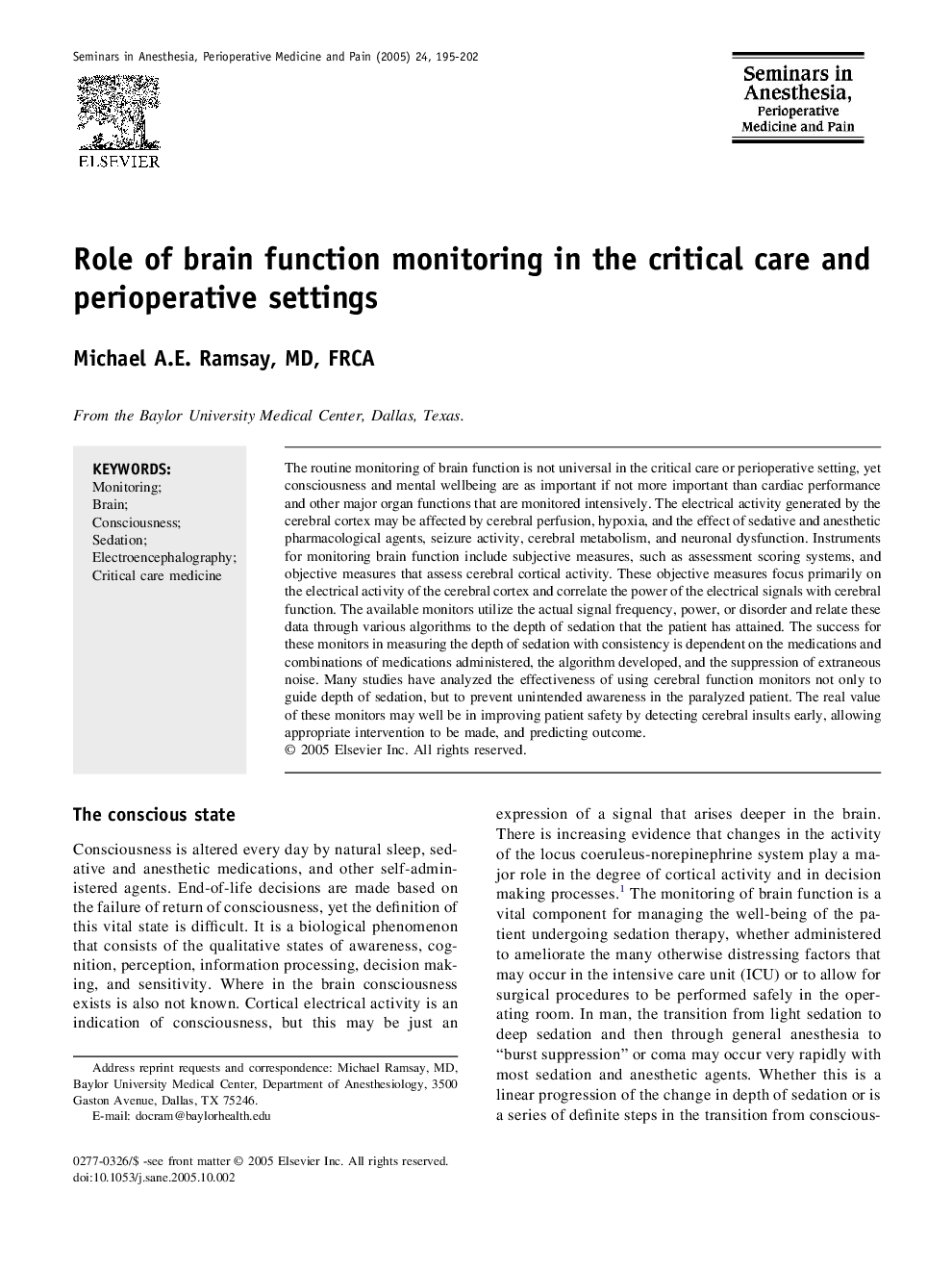| Article ID | Journal | Published Year | Pages | File Type |
|---|---|---|---|---|
| 9101099 | Seminars in Anesthesia, Perioperative Medicine and Pain | 2005 | 8 Pages |
Abstract
The routine monitoring of brain function is not universal in the critical care or perioperative setting, yet consciousness and mental wellbeing are as important if not more important than cardiac performance and other major organ functions that are monitored intensively. The electrical activity generated by the cerebral cortex may be affected by cerebral perfusion, hypoxia, and the effect of sedative and anesthetic pharmacological agents, seizure activity, cerebral metabolism, and neuronal dysfunction. Instruments for monitoring brain function include subjective measures, such as assessment scoring systems, and objective measures that assess cerebral cortical activity. These objective measures focus primarily on the electrical activity of the cerebral cortex and correlate the power of the electrical signals with cerebral function. The available monitors utilize the actual signal frequency, power, or disorder and relate these data through various algorithms to the depth of sedation that the patient has attained. The success for these monitors in measuring the depth of sedation with consistency is dependent on the medications and combinations of medications administered, the algorithm developed, and the suppression of extraneous noise. Many studies have analyzed the effectiveness of using cerebral function monitors not only to guide depth of sedation, but to prevent unintended awareness in the paralyzed patient. The real value of these monitors may well be in improving patient safety by detecting cerebral insults early, allowing appropriate intervention to be made, and predicting outcome.
Related Topics
Health Sciences
Medicine and Dentistry
Anesthesiology and Pain Medicine
Authors
Michael A.E. (FRCA),
